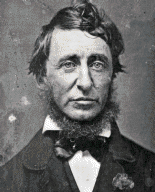|
|
and Technology |
|
|
and Technology |
 |
"We are in a great haste to construct a magnetic telegraph from Maine to Texas; but Maine and Texas, it may be, have nothing important to communicate."--Thoreau, Walden. |
|
Syllabus
Faculty: David Simpson received his PhD in English and Comparative
Literature at Columbia University and has served on the faculty in English
and humanities at Columbia and Northwestern. His academic interests include
classical and Renaissance literature, media studies, American culture,
professional communication, and intellectual history. A former member of
the Chicago Board Options Exchange, he has served as a consultant in business
writing and technical stock-market analysis and has written articles and
reviews on topics ranging from jazz and cinema to slang and cyberculture.
He has served on the visiting faculty at SNL since 1990.
Course Description: A course in literature, art, technology,
and cultural history. Students will review and discuss popular current
attitudes toward Nature, mechanization, and industrial and electronic technology--especially
as those attitudes are embodied or foreshadowed in classic works of American
literature. Our contemporary attitudes, it will be suggested, are largely
the product of an interplay or dialogue between two rival cultural traditions:
a "Utopian" or "classical" tradition, which is favorable to technology
(and which is reflected in our enthusiasm for inventions, our pride in
U.S. engineering achievements, and our admiration for machine power), and
an "Arcadian" or "romantic" tradition, which is antagonistic to technology
(and which is illustrated by our affection for natural beauty and wildlife
and our concern for the environment). It appears that these two conflicting
traditions are also responsible for the emergence and continuing popularity
of two well-known American stereotypes--the idle loafer and nature lover
(as exemplified by Rip Van Winkle, Huck Finn, or Henry David Thoreau) and
the enterprising hustler, super-salesman, gadget-maker, or fix-it-man (a
type celebrated from Ben Franklin to Henry Ford).
Competence Statements: AL-3 Can evaluate
works of art or literature in terms of their form, content, or style.
Criteria for demonstrating competence: Students taking the course for AL-H or A-1-E competence will write a 6-8 page essay discussing the career, artistic achievement, and social or historical significance of a prominent American author, composer, artist, or film-maker. Students taking the course for AL-4 or A-3-D competence will write a 6-8 page essay on the role of leisure and recreation (or work and vocation) in the view of an important American philosopher, artist, social critic, business enterprise, or religious organization. Students taking the course for AL-3 or A-1-C credit will complete a take-home examination (part essay, part objective) testing their their ability to define and apply important aesthetic and critical concepts (e.g., genre, neo-classicism) and literary terms. (For a partial list of terms and sample applications, see the Glossary.) Students enrolled in the course for PW-B or S-3-A
credit will write a 6-8 page essay discussing the origin and development
and the social, economic, environmental, or cultural consequences of a
new invention or technology. Sample topics: the development and impact
of photocopying technology, or the economic and ecological effects of a
particular type of farm equipment or industrial technology.
Course Objectives
Required Texts: Thoreau, Walden.
Recommended: Emerson, "Nature" and Selected Essays.
Format: Informal lecture/discussion. Evaluation Methods: One test, two essays (see "Competence
Criteria"). Essays will be evaluated primarily on content. However, to
receive a grade of "A," student essays must exhibit superior organization
and style. (For style and format guidelines, click
here.)
Note: All students enrolled in this course are responsible
for knowing and upholding the university's policy on academic integrity
as outlined in the DePaul
Student Handbook.
Schedule of Class Meetings Week 1 (Sep 9). Technology, Culture, and the Idea of Progress. Assignments: AL-H/A-1-E paper assigned. (Due
10/28.)
Week 2 (Sep 16). America: "Stupendous Scene" or "Wild and Savage Place"? Romanticism and the Discovery of Scenic Beauty. Assignments: AL-4/A-3-D paper assigned. (Due 9/28.)
Week 3 (Sep 23). Machines as Symbols, Cultural Icons, and Objects of Art. Assignments: PW-B/S-3-A essay assigned. (Due
11/4.)
Week 4. (Sep 30). Nostalgia, Technological Change, and the Acceleration of History. Readings: Thoreau, "Where I Lived, and What I Lived
For" (Walden, Chapter 2). Whitman, "Song of the Exposition."
Week 5 (Oct 7). Prometheus, Daedalus, Faust, et.al.: Images of the Scientist/Inventor in Myth, Literature, and Popular Culture. Assignments: AL-3/ A-1-C exam distributed.
(Due 11/4.)
Week 6 (Oct 14). Modern Machines--Tools for Human Liberation or Weapons of Doom? Readings: Whitman, "Song of the Broad-Axe."
Twain, A Connecticut Yankee. Vonnegut, Catís Cradle.
Recommended videos: 1984; Until the End of the World; 2001: A Space Odyssey; Forbidden Planet.
Week 7 (Oct 21). Technology and Democracy. Assignments: AL-1 essay due.
Week 8 (Oct 28). Columbus, Western Technology, and Manifest Destiny. Assignments: AL-1 and AL-4 papers due.
Week 9 (Nov 4). The Millennium and Beyond: The Role of Science-Fiction in a Technological Society. Assignments: PW-B essay, AL-3 exam due.
Week 10 (Nov 11). Summary and Review. Assignments: Last class meeting.
|
|||||||||||||||||||||||||
| Questions: David
L. Simpson (dsimpson@condor.depaul.edu)
The School for New Learning, DePaul University, Chicago, IL 60604 © David L. Simpson, 1998 |
||